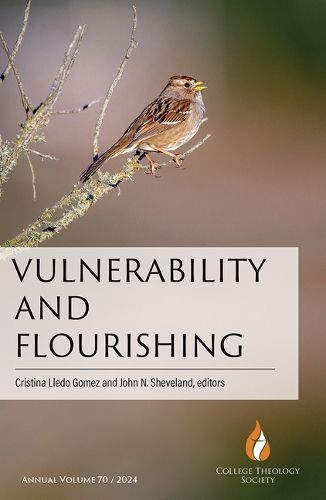Readings Newsletter
Become a Readings Member to make your shopping experience even easier.
Sign in or sign up for free!
You’re not far away from qualifying for FREE standard shipping within Australia
You’ve qualified for FREE standard shipping within Australia
The cart is loading…






In the wake of various sexual abuse crises and patterns of abuse and cover-up which deny voice and agency to many, an important work of a post-traumatic church and society is to attune to the various and evolving ways vulnerability can be experienced. Vulnerability and Flourishing aims to develop theological and multidisciplinary resources for responding to vulnerability to violence and abuse, in support of the flourishing of all of God's creation. When is vulnerability a good, and when is it subject to manipulation and harm? How might society and church understand vulnerability today, deconstruct and analyze its various manifestations and build up a way of life that cares for and protects the vulnerable, even paving ways forward for flourishing? How might the church reimagine itself if its preferential option for the poor expressed itself more intentionally as a preferential option for the vulnerable?
$9.00 standard shipping within Australia
FREE standard shipping within Australia for orders over $100.00
Express & International shipping calculated at checkout
In the wake of various sexual abuse crises and patterns of abuse and cover-up which deny voice and agency to many, an important work of a post-traumatic church and society is to attune to the various and evolving ways vulnerability can be experienced. Vulnerability and Flourishing aims to develop theological and multidisciplinary resources for responding to vulnerability to violence and abuse, in support of the flourishing of all of God's creation. When is vulnerability a good, and when is it subject to manipulation and harm? How might society and church understand vulnerability today, deconstruct and analyze its various manifestations and build up a way of life that cares for and protects the vulnerable, even paving ways forward for flourishing? How might the church reimagine itself if its preferential option for the poor expressed itself more intentionally as a preferential option for the vulnerable?